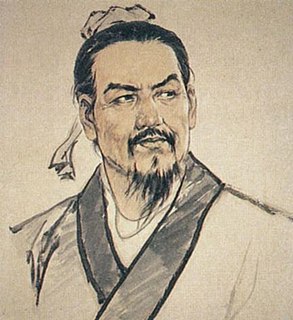A Quote by Voltaire
When his highness sends a ship to Egypt, does he trouble his head whether the mice on board are at their ease or not?
Related Quotes
He lifted the arm covering his eyes and turned his head to glare at her. "I knew you were trouble the first time I saw you."
"What do you mean, trouble?" She sat up, glaring back at him. "I am not trouble! I'm a very nice person except when I have to deal with jerks!"
"You're the worst kind of trouble," he snapped. "You're marrying trouble."
It is indolence... Indolence and love of ease; a want of all laudable ambition, of taste for good company, or of inclination to take the trouble of being agreeable, which make men clergymen. A clergyman has nothing to do but be slovenly and selfish; read the newspaper, watch the weather, and quarrel with his wife. His curate does all the work and the business of his own life is to dine.
The love of a Sage for his fellows likewise finds expression amongst mankind. Were he not told sop, he would not know that he loved his fellows. But whether he knows it or whether he does not know it, whether he hears it or whether he does not hear it, his love for his is without end, and mankind cease not to repose therein.
It is the interest of every man to live as much at his ease as he can; and if his emoluments are to be precisely the same, whether he does or does not perform some very laborious duty, it is certainly his interest, at least as interest is vulgarly understood, either to neglect it altogether, or, if he is subject to some authority which will not suffer him to do this, to perform it in as careless and slovenly a manner as that authority will permit.
Tuthmosis IV was, like his father Amenhotep II, a belligerent pharaoh and one of the first to wage war without provocation beyond Egypt's boundaries. As a result of his aggressive attacks slaves and foreign elements were common in Egypt. Consequently, there was more intermarriage during his reign than at other times. Egypt was visited by merchants and traders and was extremely prosperous and cosmopolitan during this period.
The master in the art of living makes little distinction between his work and his play, his labor and his leisure, his mind and his body, his information and his recreation, his love and his religion. He hardly knows which is which. He simply pursues his vision of excellence at whatever he does, leaving others to decide whether he is working or playing. To him he's always doing both.
The man of system, on the contrary, is apt to be very wise in his own conceit; and is often so enamoured with the supposed beauty of his own ideal plan of government, that he cannot suffer the smallest deviation from any part of it... He seems to imagine that he can arrange the different members of a great society with as much ease as the hand arranges the different pieces upon a chess-board. He does not consider that...in the great chess-board of human society, every single piece has a principle of motion of its own, altogether different from that which the legislature might choose to impress upon it.
Why are we never quite at ease in the presence of a schoolmaster? Because we are conscious that he is not quite at his ease in ours. He is awkward, and out of place in the society of his equals. He comes like Gulliver from among his little people, and he cannot fit the stature of his understanding to yours.
The Landlord is a gentleman who does not earn his wealth. He has a host of agents and clerks that receive for him. He does not even take the trouble to spend his wealth. He has a host of people around him to do the actual spending. He never sees it until he comes to enjoy it. His sole function, his chief pride, is the stately consumption of wealth produced by others.





































